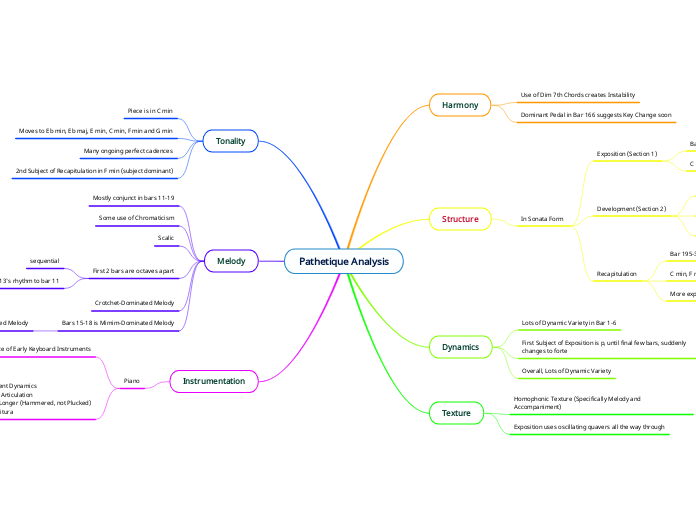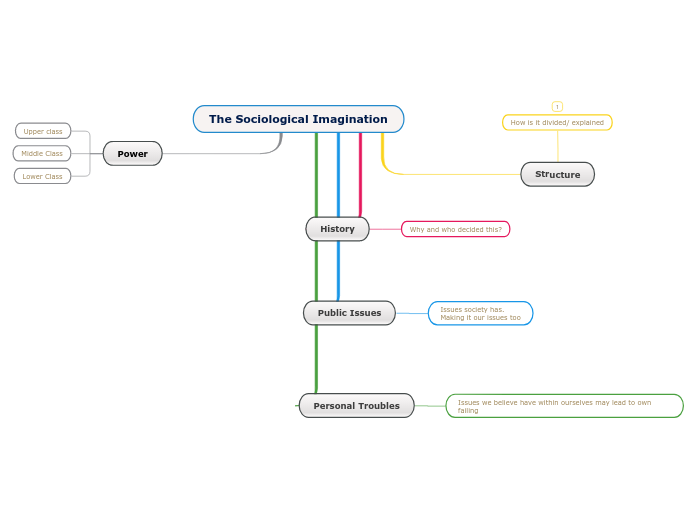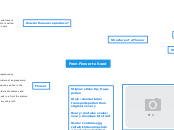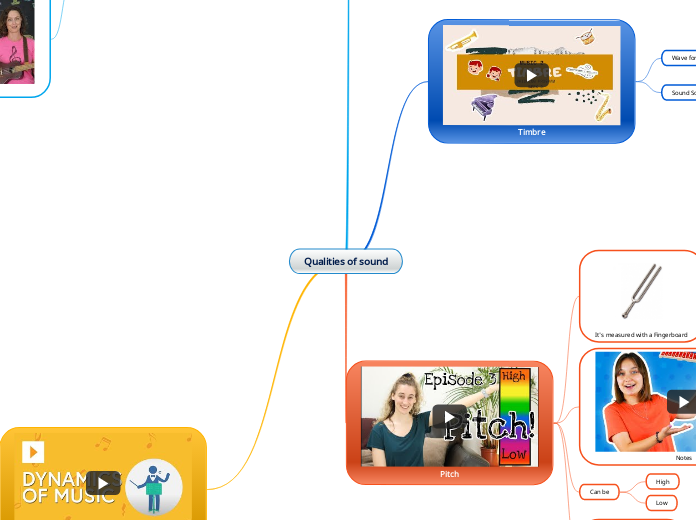Pathetique Analysis
Instrumentation
Piano
Fortepiano can:
- Sustain Notes
-Play with Different Dynamics
-More Variety in Articulation
-Hold Notes for Longer (Hammered, not Plucked)
-Has Wider Tessitura
Piano Used in place of Early Keyboard Instruments
Melody
Bars 15-18 is Mimim-Dominated Melody
Descending Disjunct Arpeggiated Melody
Crotchet-Dominated Melody
First 2 bars are octaves apart
apart from bar 13's rhythm to bar 11
sequential
Scalic
Some use of Chromaticism
Mostly conjunct in bars 11-19
Tonality
2nd Subject of Recapitulation in F min (subject dominant)
Many ongoing perfect cadences
Moves to Eb min, Eb maj, E min, C min, F min and G min
Piece is in C min
Texture
Exposition uses oscillating quavers all the way through
Homophonic Texture (Specifically Melody and Accompaniment)
Dynamics
Overall, Lots of Dynamic Variety
First Subject of Exposition is p, until final few bars, suddenly changes to forte
Vast Variety of Dynamics in Each Sonata Section
Lots of Dynamic Variety in Bar 1-6
Structure
In Sonata Form
Recapitulation
More expected relationship in keys in recapitulation
C min, F min
Bar 195-310
Development (Section 2)
Development begins in distant key
E min
Bar 137-194
Exposition (Section 1)
C min, Eb min, Eb maj
Bar 11-136
Harmony
Dominant Pedal in Bar 166 suggests Key Change soon
Use of Dim 7th Chords creates Instability









